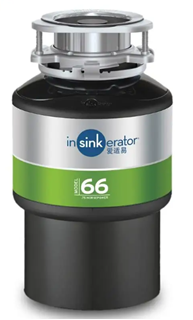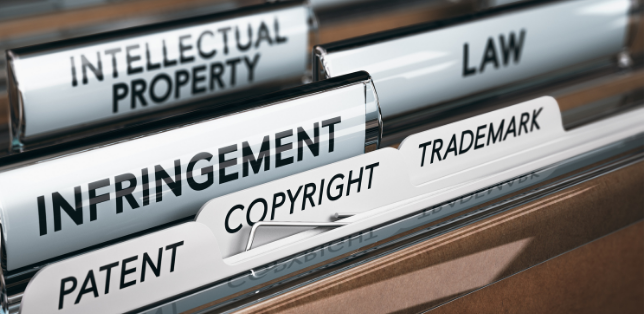Recently, a Chinese court confirmed for the first time in Emerson Electric Co. v. Xiamen Water Angels Drinking Water Equipment Co. Ltd. and others that mere trade mark squatting may constitute an act of unfair competition against a brand owner. Case reference (2021) Min Min Zhong 1129. Previously, a finding of unfair competition required misleading use of the misappropriated trade mark or involved the filing of a maliciously complaint or infringement lawsuit against the genuine brand owner.
Background of the case
Emerson Electric Co.'s ("Emerson") "In Sink Erator" food waste disposals are popular worldwide, including in China. The "In-Sink-Erator" trade mark was first registered in China in the 1990s and was followed by a multiple further registrations for marks incorporating “In-Sink-Erator” and/or its Chinese character version.
Since 2010, Xiamen Water Angels Drinking Water Equipment Co. Ltd. ("Water Angels") applied to register more than 20 marks incorporating the "In-Sink-Erator” mark”. The application were filed through Xiamen Xingjun IP Firm ("Xingjun IP"), a trade mark agency. The Chinese company also applied to register other famous third-party brands, such as DOW, CALGON and DJI (a well-known Chinese brand for drones). Mr. Wang, the legal representative of Water Angels, applied in his personal name to register "iphone" and others through Xingjun IP.
Emerson filed oppositions, sought invalidations, and pursued administrative remedies to try to prevent registration of the Water Angels marks. But Mr. Wang established another company (Xiamen Ocean-Accepts-All-Rivers Network Technology Co. Ltd. - “OAA-Rivers”) in 2015 and, using the same agent, Xingjun IP, applied register more than 20 "In-Sink-Erator"marks since 2017. Emerson again opposed the applications.
|
Emerson’s Mark in use |
Marks filed by Wang’s companies |
 |
|
Facts of the case
In March 2020, Emerson filed a lawsuit with Xiamen Intermediate People's Court naming Water Angels, OAA-Rivers, Mr. Wang and Xingjun IP as defendants. It asked the court to declare that the first three defendants' conduct in filing the applications, and the fourth defendant's conduct in providing assistance, constituted unfair competition. Prior to the first instance hearing, Water Angels and OAA-Rivers withdrew or revoked all their relevant trade marks.
In April 2021, the court issued its judgment holding that the serial attempts to misappropriate the marks constituted unfair competition and that the two companies and their de facto controller, Mr. Wang, had jointly committed an infringement. Also, Xingjun IP had knowingly facilitated the infringement. The court ordered all four defendants to cease applying to register marks identical or similar to Ermerson’s trade marks and to compensate Emerson for its attorneys' fees and the reasonable expenses it had incurred, and to issue a statement in the national media to eliminate the impact of the infringement.
The four defendants appealed this decision to the Fujian Provincial Higher People's Court. In September 2021, the appellate court issued its decision, upholding the first instance verdict. The second trial verdict was made available to the public in June 2022.
Major issues of the case
1. Is mere trade mark “grabbing” an act within the jurisdiction of the Anti-Unfair Competition Law?
Water Angels and OAA-Rivers argued that they were only engaged in filing applications, an act to initiate administrative procedures, and that all trade marks had been revoked or withdrawn. None of the marks had been put into use, nor had they carried out any business activity. So there was no consumer confusion or disruption to Emerson's business activities. As such, their actions should not be subject to the Anti-Unfair Competition Law, nor were they among any of the unfair competitive acts enumerated in the Law.
However, the courts held that the two companies, in registering many identical or similar marks, forced Emerson to defend its legitimate rights and interests by undertaking multiple trade mark oppositions, invalidation petitions, administrative litigation and civil proceeding, and in doing so it had incurred significant cost. The defendant companies' trade mark filings had interfered with Emerson's operations to a a material extent and so could be found to constitute unfair competition.
2. Can the legal representative of the company become a joint infringer with the company?
Mr. Wang, the legal representative of Water Angels and OAA-Rivers, argued that he did not apply for registration of the In-Sink-Erator related trade marks in his own name and therefore did not commit joint infringement, and that the companies had their own independent legal personality. Therefore, the companies were responsible for their actions, but the legal representative should not be held jointly and severally liable.
The court held that Mr. Wang, in addition to being legal representative of the two companies, was also the executive director and general manager, major shareholder and de facto controller of the two companies. Also, after the applications made by the first company were found illegal, he then set up the second company to continue the attempts at trade mark misappropriation. He was aware of the infringement and intentionally used the two companies as tools to carry out the infringement. He was therefore a joint infringer and should be held jointly and severally liable.
3. Can a trade mark agency become a joint infringer as a result of filing trade mark applications for its clients?
Xingjun IP argued that its acts of filing the applications for a client were not unlawful, nor was it aware that the principals were involved in trade mark squatting. So, it did not violate the good faith obligations of an agency and should not be liable for infringement.
The courts, though, held that Xingjun IP represented the vast majority of the two defendant companies' infringing applications and continued to file infringing trade mark applications for the companies even after the illegality of the acts was recognised in earlier administrative proceedings. Therefore, its acts in representing the two companies were acts of facilitating infringement and should bear joint infringement liability.
This seems to be the most controversial finding of the case. After the verdict was made public, it sparked a heated debate among fellow trade mark professionals.
Comments
Recently, trade mark squatting activities have become more sophisticated. Such squatting activities may involve different companies controlled by the same group of people with the involvement of IP professionals targeting specific brands. Due to the relatively low cost of filing trademark applications, and the lack of any obligation on an applicant to defend or justify its application if challenged, it is increasingly common for squatters to choose not to respond to challenges brought by brand owners, but simply to immediately re-apply to register the same trade marks. This results in brand owners often being caught in the position of dealing with endless infringing applications and incurring significant time and expense.
The judgment in this case classified the act of trade mark “grabbing” to constitute unfair competition against the right holder and appropriate remedies were imposed. This groundbreaking ruling may go some way to deterring trade mark snatching and cool the squatting phenomenon, while also encouraging more brand owners to actively defend their rights.
While the ruling in this case has sparked debate and controversy among trade mark professionals because of concerns that filing applications for clients could generate liability, this should not impact unduly on reputable agencies that do choose to abide by the code of professional ethics.






